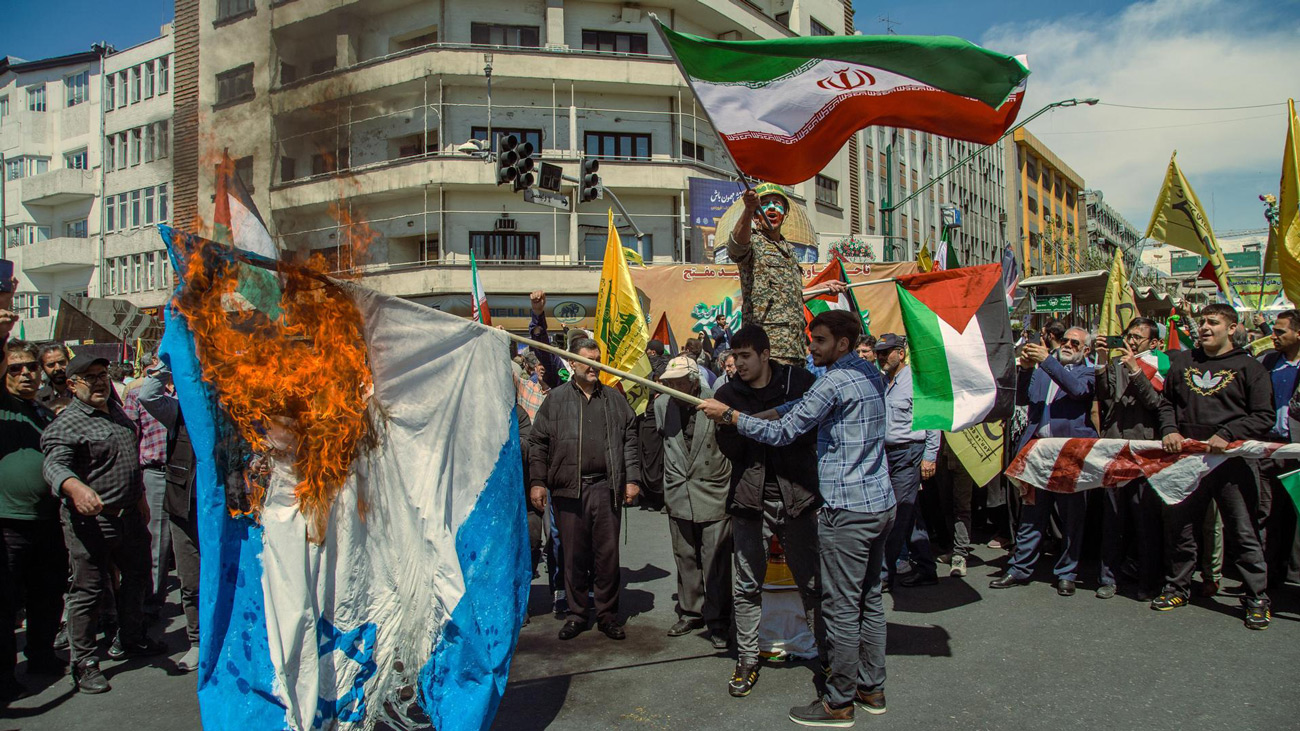“The most beautiful trips for me are those that go slowly”
- Arantxa Orbegozo Txitxi (Tolosa, 1962) is a carrier of emotion and passion. He takes life in his hands and offers it to anyone who turns it on. He's been an athlete, a cyclist, and he's been involved in other disciplines that he's proposed to himself. However, what has really moved him has been to travel. It has always felt part of nature, to the point of being at risk. This observing view has also led to the painting and is now leaving its mark on several walls of the Basque Country. Your adventurous character makes sure you keep dreaming. Listening to orbegozo is like taking life in your hands.

Where would you start to tell your trip?
I have a Gypsy Indian who needs good time, so I have always resorted to nature. When I was 12 years old, I started in the Girl Scout group that was in Tolosa, and that opened up a world for me. They would give us five irons to shrink, and with that we would make the kitchen, a hole in the ground like a fireplace. We were going to search for firewood to turn the fire on well, because if we didn't get wood, the macaroni didn't do it. Annoying! If the store is poorly assembled, wet. We had really nice things. I loved it so much that I wanted my kids to go to the camp as well. But no, they didn't want to go, so I brought the camp home. We lived under the valley of Araitz, in a small town of about a hundred inhabitants. I wanted to educate my kids a little bit more brutally than on the street. So I made a perfect replica of the Scout camps: Basque sports day, pirates day, pirate day… We have the river near the house and there we spent the day and night, you could only get home to poop. We also took a tour to the upper town, and slept in the church. It did us a bad time [laughing]. It's pretty.
So did he start building his vision of life?
I've got a lot out there. I like uncertainty, uncertainty in the atmosphere. Contact with nature is very important to me. I think there needs to be a little bit of gypsy in everybody's lives, both young and adult, and more in the atmosphere. That's what I've searched for, and that's what the travels I've made have brought me.
Where does the passion to travel come from?
I come from the bakery family, Sunday was also a day of work, so I have never traveled with my parents. For me, it was important to travel, I wanted to see more places. We have an aunt who was a nun to America. It occurred to him that he would take all his nephews to study English. We've always had America in the head, that's a bigger world out of here. I was 16 years old, and my head turned around 360 degrees. From the deep Basque Country of Franco to the United States? Terrible.
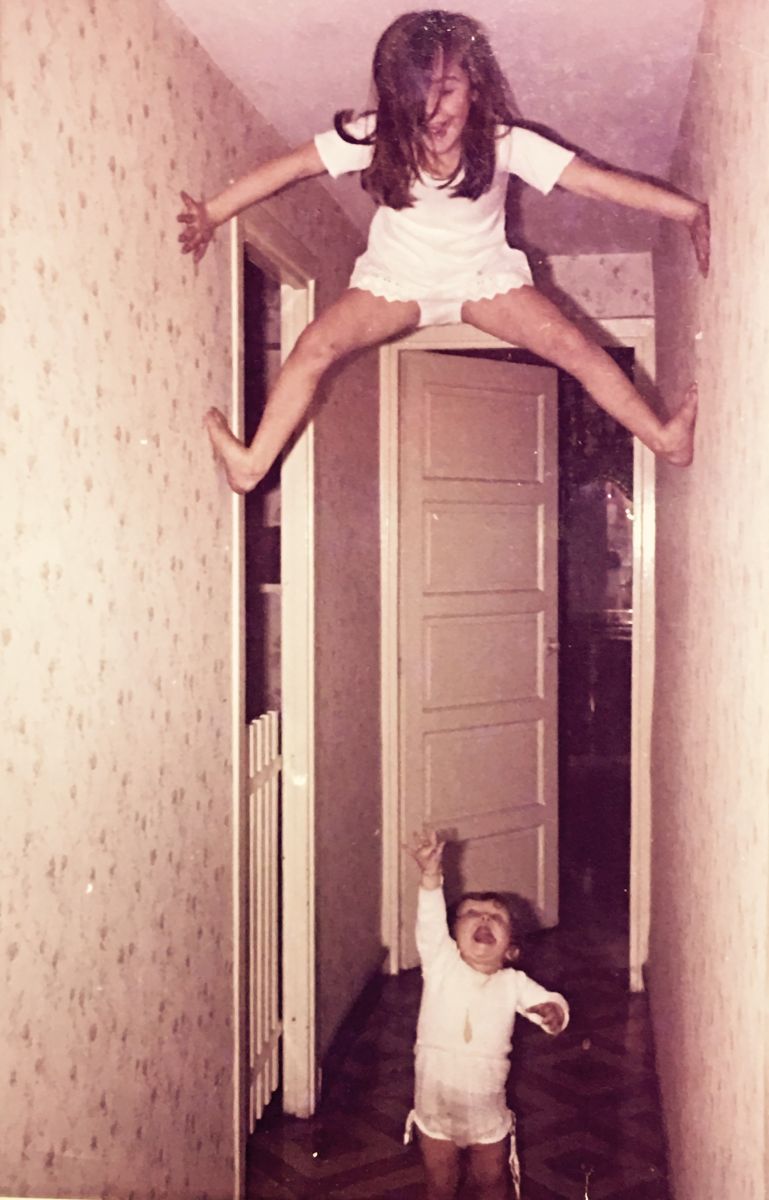
Has sport also opened the doors to the world?
Yes. I started as a young man, when I was 12. I was very moved and my mother couldn't go with me. How am I going to get tired of this? The doctor advised him to sign up for some sport and I enrolled in athletics. I competed up to 19 years. I have three Spanish medals, I also made record in weight-bearing and javelin releases. I walked a lot on the mountain, both in summer and in winter, and I climbed as well. When I left athletics, I started riding a bicycle. At that time there were very few women who did sport, we came from Franco's time. We saw some of them in basketball, swimming or cycling, but little. Here came the group of women cyclists from Orbea. I was cycling to learn Euskera with my little bird behind me, and as you see me every day, I was proposed to join the group. If the proposal had been to wind up, we would surely become reers. It was then that we created the first group of girls in Spain. When we were cyclists, Triathlon emerged. And who is going to start there as well? We were the first in Triathlon. Then we go to mountain biking.
You're a pioneer in women's sport.
It's curious. When we were interviewed and asked how we did it, we didn't know how to respond. How will we do that? Like them (men). We had never thought about the difference, we had not lived it. If they can, it never occurred to us that we didn't. It hadn't occurred to him. In that group there was no gender difference, everything was the same: the same clothes, the same tiredness, the same hunger, the same scare. Nature makes no difference. Now I realize that we are opening a path. The other day they paid a tribute to us for being pioneers. However, we have been without any intention, without ever thinking about it. Those outside have noticed and we have been surprised. A tribute to us? At that time we were weird, what we did different.
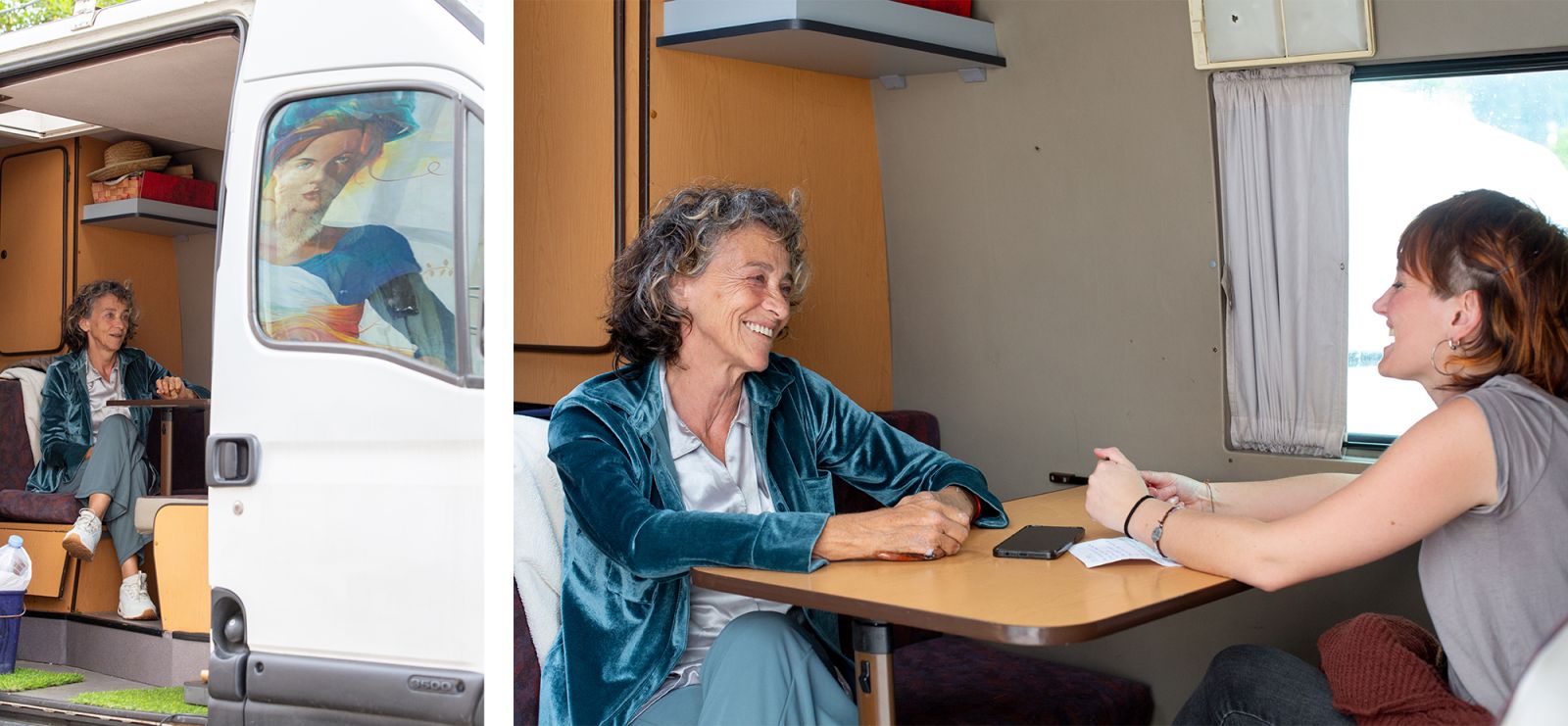
They didn't follow each other's life model.
*Dina Bilbao was asked: You're not going to have children? And he answered “at 37 years old.” And buy a house? 37 37. And a fixed job? 37 37. He said he would do everything at the age of 37 to let us make our lives our own way.
Was the emotion of discovering the axis of your life?
The bicycle has opened a lot of doors to us: it has allowed us to make friends and learn sport, among other things. But above all, it allowed me to get to know the world. If we had a world championship in Canada, by the way we would take our bikes and stay there. However, I have never liked to compete, travel was my biggest interest. The record I got also brought in the desire to continue traveling. But to go to all the trips and book space, it was necessary to train a lot. I didn't want that. Then it occurred to me to do a two-year course to be a masseur and so I started traveling as the first female masseuse of Orbea and the Spanish National Team. I was always going.
“I’ve never liked to compete,
travel was
my biggest interest”
It's not the same as a tourist as a traveler.
For me, the most beautiful trips are those that go slowly. Sometimes it's a fixed destination, but other times we've started with the van and we've moved from one place to another. If you bring it all planned, you leave no room to the surprise. *The Nairobi way of travel caught me from the start. They came up with an exciting ride, in a van or otherwise. There were also Dina Bilbao, Amaia Elosegi, Josune Gorostidi and Nekane Urkia and we joined a nice group of friends. But each at the same time, sharing adventure, sport and the excitement of travel. The motorhome didn't exist then and we were carrying a big bus with piraguas. My first trip on a Land Rover was to Morocco. Then we went to the island of Andaman to make the crossing of piragua. We have crossed Cuba by bicycle, Cape North by skiing and by bicycle... At that time, there were no resources, we weren't sure what was going to happen. Sometimes we've also been endangered on the shore -- hunger, disease, tiredness, or some scare. To get out of there, it takes a lot of complicity between friends and taking the tools. We were fortunate that the Nairobi were close to us, but I wouldn't live them. It has also served to know myself well, to know where I have my limits. This is how you learn, rather than in sports competitions.
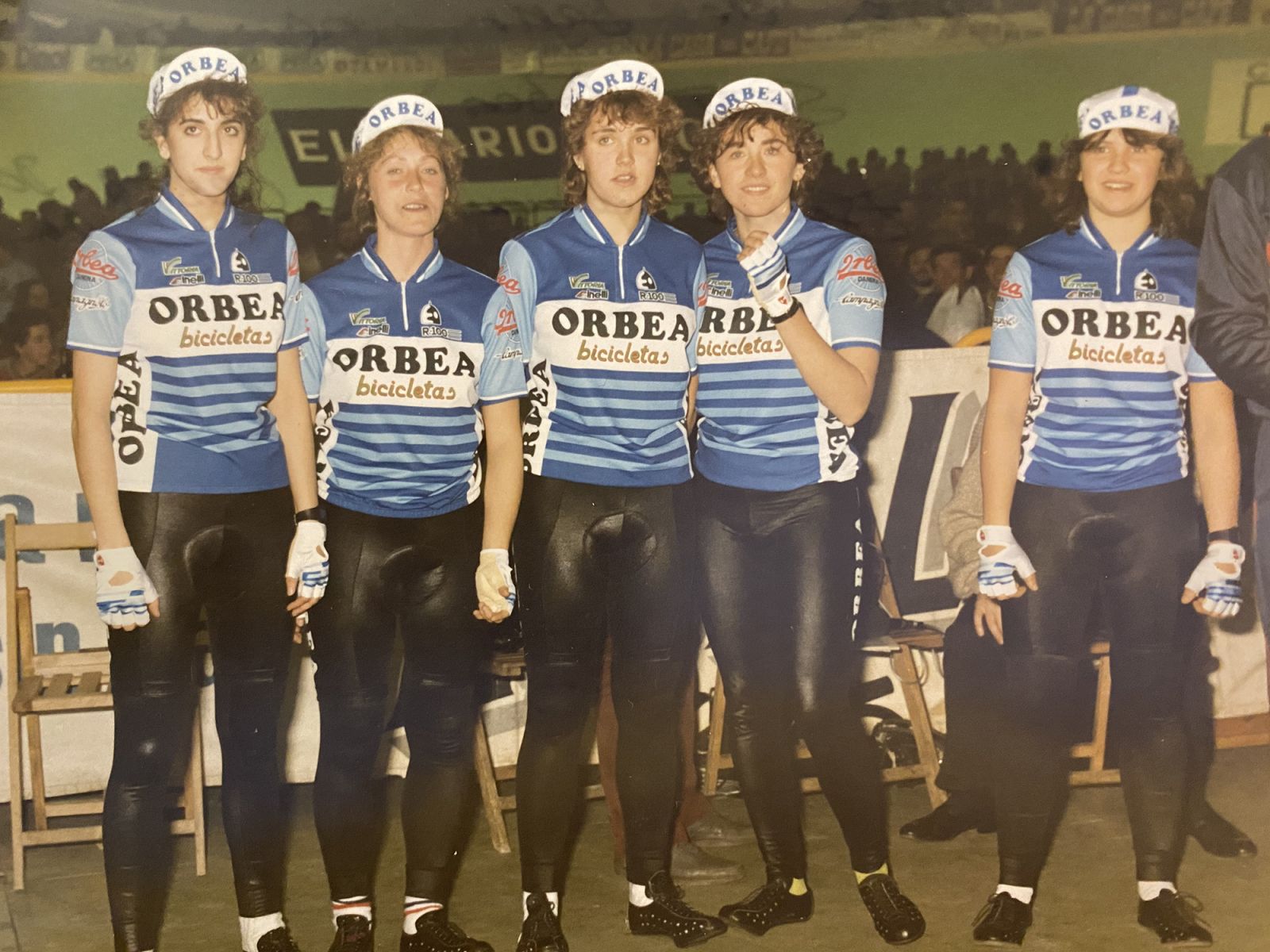
Has sport also been the way to make a living?
At the age of 21, Amaia Elosegi, Dina Bilbao and I created the Kaxkardi canoeing association. In summer, we gave classes, we went with pirate to villages that didn't have a coast. We have been to Ataun, Lazkao, Tolosa, Zaldibia, the pool of Beasain… We lived in a camper and played from the town to the village. The goal was not to go to work every day, to own our time. Everyone has to know what success is for him and where to put strength. For me, success has been to have free time to live as I please. "What would I be happy about?" How have I done well in my own way? I thought. With the money we got from the classes we taught and the time we had, then we traveled.
What does it mean to travel?
Above all, relativizing things. In every place, things are so different... And they always work! That is the most important thing. It's a mistake to put your hands under the table when you eat here and put them on top in the United States. Take it to any facet of life. You learn something from all the culture. Traveling has also made me more resilient. We haven't always traveled comfortably, we've never gone with a card. Many times we have not had a plan B, we have adapted to the environment with few complaints. And I've learned to appreciate what we have here. Here we live very well, we're lucky if we compare ourselves to other places. I think it is advisable to live three months in a skin that is not yours, that is not so comfortable. To value life, to develop empathy, to understand more the other and to know the world. We look at the world from our navel, from a very small prism.
.jpg)
When you were a mother, you abandoned sport and travel.
I've been a housewife and a mom for 20 years. I came down from the world. For me it has been the most beautiful and most important thing I have ever done. Every moment has yours. I wanted to be a mom, and I was about to be a mom. I had a great time, I played a lot with the kids. I have tried to educate myself in my own way. Too many advice is given on the education of children and it seems to me that this is the field that should least be given: how to educate your children. I am very happy and proud of that. I have very nice kids, and now I'm a grandmother.
“I need to be
physically fine to climb the
scaffold or to make a chiringuitos with my grandson”
But twenty years later, sport takes its place again in life?
I didn't want to do it with the kids, so I didn't. Working life yes, but zero sport. All of a sudden, one day I came to take something that was a little away and I had trouble getting up. I would be 51 years old and I intend to spend 100 years. Do I have 50 years left inside this body? None of that. So I made myself the best gift of my life: to reconnect and rediscover it both physically and illusionally. I started to wonder what I wanted to do and I set out to do a 100-day challenge, promising to do things right: start eating more consciously than ever before and redoing physical exercise. I also invented an extensive notebook of questions and reflections: what I think, what customs I have, who I am with, where they take me… And I turned the tortilla in 100 days.
You decided to extend that challenge and proposal to other women.
If change is so simple, why keep it for me? I created two groups as a test. 22 people were encouraged and all managed to turn the tortilla around, each from its reality. From there I offer the online program and continue learning. About 700 people have already passed. I call Y if I decide to the Instagram page, with the aim of raising the receiver's awareness of the body, the food and what they want to do, especially women over 50 years of age. The only thing we have left in this life is time and we must take advantage of it.
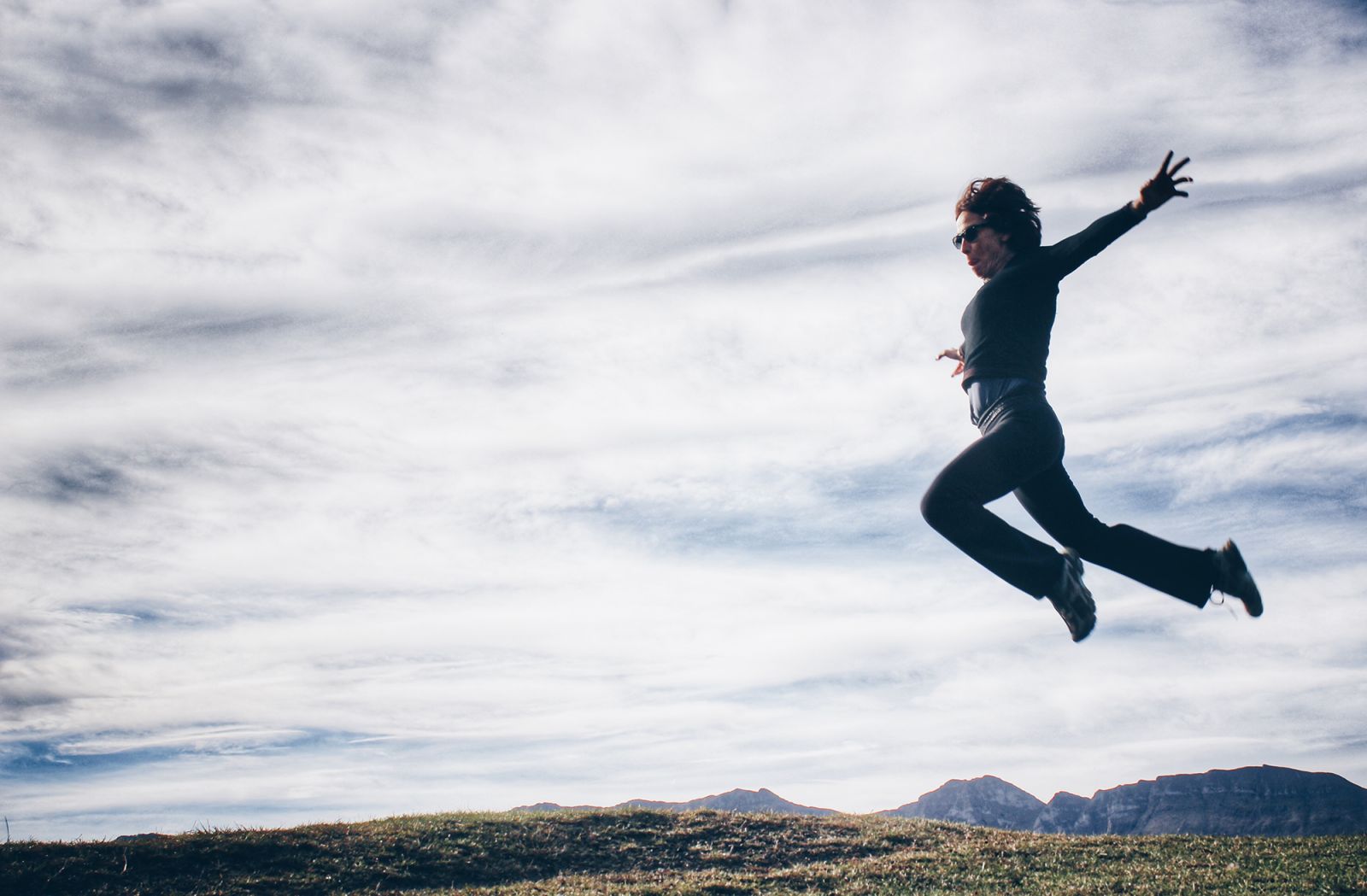
Would you say that old age calls all of this into question?
If you don't have an accident or you don't get sick, there's a lot left on your own. It can reach adulthood in good physical condition. We didn't have any references before, but now I see them at the age of 80 and as an example. If I was 20 years old, I'd like to be like me now, both physically and mentally. If I couldn't have with my body the illusions and dreams I have now. But because I don't feel limited, I make room for what I want.
“We look at the world from our navel, from a very small prism”
Many of those over 60 have surrendered, but they have the opportunity and it's easy. I want to encourage you to ask you how you want to live life, because this is not infinite. Especially women, who have taught us to be the last in the queues, to talk about self-love, development and growth. Don't settle down, don't give up. “Menopause has left me 25 kilos.” No, you can turn it around. Let the remaining years be of illusion, of sharing, of enjoying. We have already given a great deal. We have to think and plan for the future, have coherence and attitude, do and have fun. That is what we have come for. If I don't become an intimate friend of myself, I'm licensed to do so. You have to make a desire, build healthy habits to be as you want. And in that, you need physical condition, for life to be active, for everyone to do whatever they want. For example, I need to be physically fine to climb the scaffold or to make a squeak with my grandson.
What do you want me to get on the scaffold?
Because I paint murals on scaffolding. Otherwise I couldn't do what I like the most and walk around with my age like a cat. I have to have balance, strength and coordination to be there painting calmly.
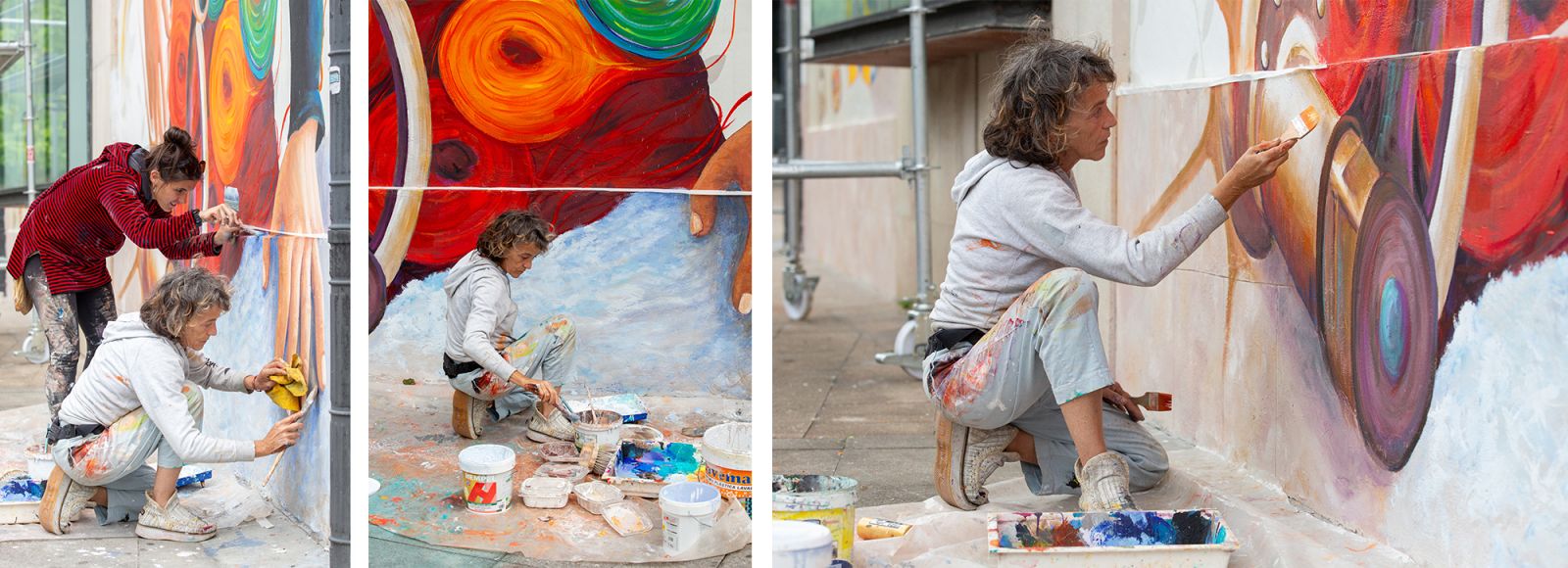
Painting is another of your passions.
I started painting by chance. When I was teaching gymnastics in Betelu, I had forgotten the key to the place. I was told to go to a painter's house to ask for a key. So I was 28. He taught me a lot of horrible paintings like the devil, that they hurt the eyes and that he had painted. But he talked to me with so much passion ... "If you can enjoy so badly painted it will be nice," I thought. So I planted a seed, a new hobby to sit down and postpone myself. I've always gotten a lot of blows, I had a long history of emergency, and the elders would tell me that if I got older, it would hurt me to take advantage of it. I couldn't paint.
For that you have to have your hand...
No. It's not about skill, it's about observation capability. Get more information and look at things from different angles. What you can't draw or paint is because you haven't been taught to be more curious. I was helped by Roberto Canicas. I was the first person who didn't scream at me. It helped me have a big corporate awareness, it was my athletic trainer. I would train myself recording videos and then watch my body, my postures. He was also a photographer, and we were dedicated to image search. I owe him a lot.
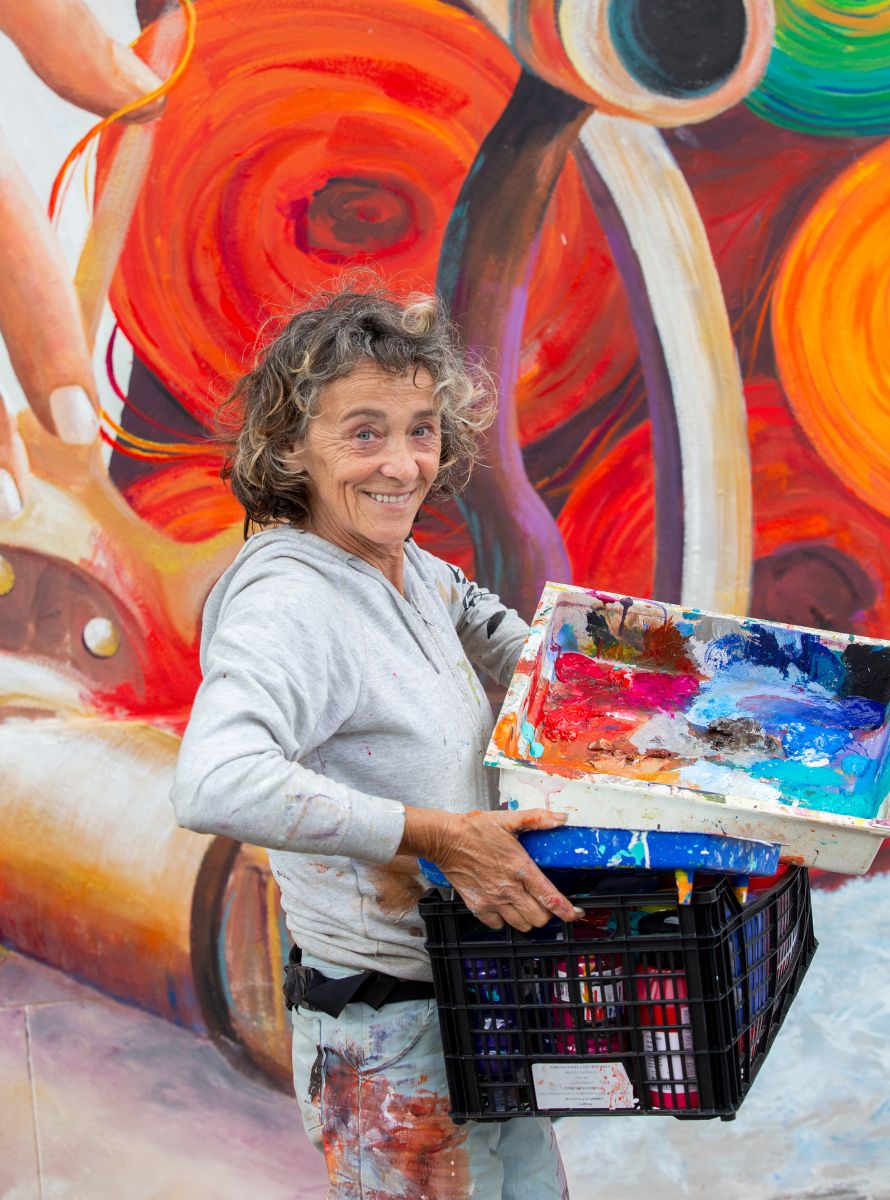
Have you made murals around the world?
A Moroccan, but not much. I have paintings in different parts of the world, but not murals. I haven't even allowed myself. One of my dreams is to travel around the world making murals. Stay in a place and paint while you live in the van and feel at home with the people there, anywhere. So I want to feed the Murales project for coexistence. Reach out to a community and ask them what they want to tell, how they want the viewer to react.
Can we say you resume?
The life I've taken has taught me a lot. I know how to enjoy the good things, but with little I'm fine. Dina's biggest hobby was after eating or after dinner. Two hours after taking the hot coffee, he kept the same coffee. What better than sharing it with people? Now I want to be with my family, but I also want to make murals and portraits, give physical exercise and painting courses, take the camper and travel, if possible, with a motorbike inside. Be more nomadic. What the sport used to give me now that the murals bring it. That's my plan.
*Dina Bilbao. Elite and adventurous athlete, disappeared on a trip to the Caribbean.
*Nairobitar. Cultural association created in 1980 in Tolosa. It was driven by Josu Iztueta, Angel Ortiz and Manuel Mokoroa, from the passion for travel and adventurous intention.
[This interview has been published in the special journal of ARGIA 2024 108 pages. People will receive LIGHT on paper or in PDF, depending on their choice. If you haven’t taken the step yet, do ARGIA and we’ll send it to you with great pleasure! The rest you can buy at the Azoka]
The following infographic is based on the report number 55 of the Delàs Peace Research Center of Catalonia, published in October 2022. In the report, Xavier Bohigas, Pere Brunet, Teresa de Fortuny, Anna Montull García and Pere Ortega analysed in depth the links between... [+]
Predicting the end of anything has become fashionable. The end of the human being, ideologies, community, authority, philosophy, or democracy. Are they labels full of sensationalism?
Maybe it was Francis Fukuyama who started that final fashion. After the collapse of the Berlin... [+]
From the Mountain of Navarre, thousands of people took to America in the 19th century to survive in grazing or other activities. Historian Raquel Idoate recovers in her thesis the history of some 4,000 of them: how the trip was made, how they were invested in, roles about... [+]
I have to go to the hairdresser,” I thought at the beginning of the course, and I didn’t go. I started with long hair and ended in the same way (halfway down the road I made a mohín and cut a piece of it. Nobody noticed. Neither do I.) It hides me if I lack the gesture and,... [+]
We are in the most industrialized territory of the Basque Country, the Left Margin of the Ibaizabal, or the Ría de Bilbao, if you will. Here the fireplaces had ordered it once. But to feed them, we used not only coal, but also the sweat of thousands of workers, and even more,... [+]
The epic is built on the lives of many men and knowing that makes society more mature.” The writer Bibiana Candia is right. In Azucre (Pepitas de Calabaza, 2021) we are told the tragedy of the enslaved Galician migrants of the 19th century, but that story would have been... [+]
Despite the black skin and curly hair, they remained invincible men, with the intelligence and resentment of human beings.” So he wrote about the slaves CRL James in the book Jakobino Beltzak, who masterfully narrates the Haitian revolution. So many brutalities, torture and... [+]
If you manage to escape the multitude of tourists and look from the Concha railing to the Donostia pier, perhaps the imagination will accompany you in the time when it was an intense marine commercial city, in which the soundtrack of the gulls will accompany you. Perhaps you are... [+]


















